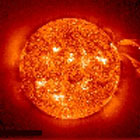 |
|||||||
|
|||||||
|
About The Lavoisier GroupAugust 2008The Lavoisier Group was formed in March 2000. The founding members were deeply concerned at the drift in policy development that was then apparent at the highest levels of the Canberra mandarinate. Decarbonisation of the economy was inevitable, it was being said, and the sooner we all had to adjust to carbon taxes the better. It was not obvious to us that, first, decarbonisation was inevitable and, second, that the science on which these conclusions were based was beyond reproach. At that point the focus of debate was on the Kyoto Protocol, which had been signed in December 1997. Australia still had not ratified, and the Protocol was a long way short of the numbers needed to bring the Protocol into effect. The essence of ratification was that the nations who were members of the OECD, and who ratified the Protocol had to commit to carbon emissions reduction targets by 2012. Those outside the OECD could ratify without any commitments to decarbonise. Kyoto came into effect when Russia ratified in 2004, but the Howard Government still refused to ratify. When Kevin Rudd became Prime Minister on November 26, 2007, he went to Bali almost immediately and initiated the ratification process on Australia's behalf. At this stage the Kyoto Protocol was virtually a dead letter. Attempts to obtain some sort of consensus to a post-Kyoto Treaty have come to nothing, and there is no possibility that that situation will change. Since 2000 there have been some remarkable developments in the scientific understanding of how our climate is controlled. Many of these developments are described in the papers found on this website. The Lavoisier Group was incorporated in 2000 in Victoria, Australia by Ray Evans. The website is currently managed by The Bert Kelly Research Centre.
|
|
|



